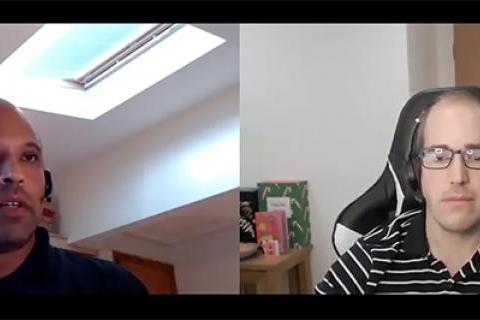Facilitating challenging conversations in groups
by Jacqueline Ann Surin in #DramaFree, Systemic Modelling

If you’ve ever moderated or facilitated a group, it's highly likely that you have experienced some challenging moments, such as group members pushing back, challenging you, or expressing discomfort about what you or the group were doing.
Within Systemic Modelling, we use the term “drama” to describe any behaviour when someone is not getting what they want. As a facilitator, it’s important to acknowledge people's dramas while making sure they don’t hijack the group’s outcomes.
The scenarios below provide some real-life examples of challenging moments, and what you could do to facilitate a group when something's happening that could be unsettling or even aggravating for you and/or others in the group.
Scenario 1. “I don’t feel safe in this group. We can’t have discussions when you haven’t created group safety.”
What you could do as a facilitator:
- Repeat back some of their exact words so they know you’ve heard them.
- Say, “Let me just check – what have you seen or heard that means you don’t feel safe?”
- Ask others in the group, “Who’s the same?” and “Who’s different?”
- Ask the group, “What would you need to see or hear that would make you feel safe in this group?”
By using this structure, you'll be:
- Acknowledging that this participant feels unsafe. (And if one person in the group feels unsafe, it’s possible others feel the same.)
- Discovering - at the same time as the group - who feels unsafe and who doesn't. (Other people might be feeling other things the group needs to know about and these questions will encourage them to share that information.)
- Encouraging those who feel unsafe to advocate for their needs and take charge of how they would like other people to be in order for them to feel safe.
- Avoiding rescuing people from what they are feeling in the group.
Scenario 2. “I want to know how you’re going to keep what we say here confidential.”
What you could do as a facilitator:
- Say, “Give me an example of what you mean.”
- Ask, “Is there anything else about confidential?”
- Turn to the group and say, “Let’s check with the rest. Who has the same need? Who’s got something different?”
- If people want opposing things, you could also ask the group, “And when [X] wants this and [Y] wants that, what would the group like to have happen?”
- Facilitate the group until it reaches a decision, always bearing in mind the highest learning or value you want from the group.
By using this structure, you'll be:
- Discovering what this person means by the word 'confidential' rather than jumping to your own conclusion.
- Finding out about other people's needs as well as the original contributor.
- Encouraging group members to come up with possible solutions when people have conflicting needs.
- Empowering the group to come to their own decisions rather than imposing your ideas on them.
Scenario 3. “I freeze whenever anyone raises their voice. I want everyone to speak softly.”
What you could do as a facilitator:
- Say, “And you freeze when anyone raises their voice and you would like everyone to speak softly.”
- Ask, “And what kind of softly would you like?” and repeat back their exact words so everyone else hears them. You might additionally say, “Give us an example of what softly sounds like.”
- Ask everyone else, “Who has a similar or different need?”
- Facilitate the other needs in the group.
- Ask participants, “When that’s what you each need, what’s one small thing you could be doing so that you get more of what you want?”
- Ask, “What’s one small thing you could be doing for each other?”
- If an individual is not able to get what they want from the group, ask them, “And when that’s what you want, and this is what the group can and cannot do, what would you like to have happen?”
By using this structure, you'll be:
- Acknowledging this person's need.
- Giving the group a chance to get clear about this person's need. This will help others in the group to decide if they are able to meet this person's need - or whether that could be too difficult or just impossible.
- Letting everyone know they will all be treated equally and that no one person’s need alone will dictate the rules in the group.
- Giving group members an opportunity to start adjusting to different individual needs without unduly stressing them out.
- Inviting each person to take charge of what needs to happen to get their own desired outcomes met.
- Helping people to accept the reality that we can’t always get what we want - and still offer them choice about what they would like to have happen when they can’t have what they want.
As you'll no doubt have noticed, these three examples of facilitation have a lot in common, and have less to do with the content of the challenges than the underlying facilitation principles. These principles are embodied in Systemic Modelling - the work of Dr Caitlin Walker, which she developed as a way to raise group attention and intelligence.
Related blog posts
Why would I want to be #DramaFree?
19th Jan 2022
How to Turn Your Life into a #DramaFree Zone [1]
27th Sep 2018
#DramaFree Goes to Church
11th Nov 2018
Systemic Modelling training: And what do I know now?
10th Oct 2020
Systemic Modelling TripAdvisor Review
23rd Nov 2016
Systemic Modelling: First Impressions
3rd Jan 2021
Related courses
About Jacqueline Ann Surin
Jacqueline Ann Surin is a Level 1 Clean Facilitator, the first Master Level Systemic Modeller in Asia, and is qualified as a Professional Certified Coach (PCC) with the ICF. She is an associate of Clean Learning and Training Attention in the UK, and a specialist-partner of the Singapore-based BeInClarity. She was previously an award-winning journalist and has a published chapter in Clean Language Interviewing: Principles and applications for researchers and practitioners.
She can be found on LinkedIn.
- Blog categories
- A - Z of Clean
- Adventures in Clean
- Book Reviews
- Business
- Clean Ambassadors
- Clean Interviewing
- Clean is like ...
- Clean Language
- Clean Language Questions
- Clean Space
- Client Stories
- Coaching
- Creativity
- #DramaFree
- Education
- Health
- ICF
- Life Purpose
- Listening
- Metaphor
- Modelling
- Outcomes
- Practice Group
- Symbolic Modelling
- Systemic Modelling
- Training





